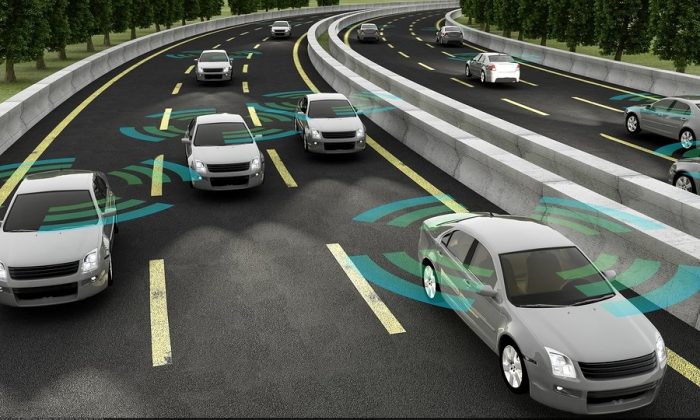Development of a Data-Driven Optimal Controller Based on Adaptive Dynamic Programming
Principal Investigator: Mengzhe Huang
Background
Considerable research has been conducted to improve the performance of individual vehicles and overall traffic flow with the goal of addressing two major problems in transportation: safety and congestion. In recent years, connected and autonomous vehicles (CAVs) with vehicle-to-vehicle (V2V) communication has been proposed as a possible solution to increase transportation system throughput while simultaneously reducing accidents in the same time. For example, CAVs that can be operated as a platoon of vehicles that proceed at a desired velocity, while keeping safe inter-vehicular distances, are found to also improve fuel efficiency. However, given the current low penetration rate of autonomous vehicles, we need to consider a more practical situation for the near future, where CAVs share the road with human-controlled vehicles (HCVs).


Research Objectives
Human-driven and autonomous vehicles can exchange data like velocities and bumper-to-bumper distances using vehicle-to-vehicle communication (V2V). By employing the shared data, control laws with improved performance can be designed for connected and autonomous vehicles (CAVs). This project, while considering human-vehicle interaction and heterogeneous driver behavior, an adaptive optimal control design method was proposed for a platoon mixed with multiple preceding human-driven vehicles and one CAV at the tail. By using reinforcement-based learning and adaptive dynamic programming techniques, a near-optimal controller can be learned from real-time data for CAVs with V2V communications. The proposed method allows the CAV controller to adapt to different platoon dynamics caused by unknown and heterogeneous driver-dependent parameters. The effectiveness and efficiency of this proposed method is demonstrated by rigorous proofs and microscopic traffic simulations.

Deliverables
- Final Report
Project Details
| Principal Investigator | |
| Funding Source | |
| Total Project Cost | $ |
| Project Dates | |
| Implementation of Research Outcomes | |
| Impacts/Benefits of Implementation |








